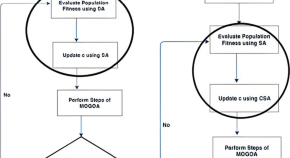An efficient hybrid approach for optimization using simulated annealing and grasshopper algorithm for IoT applications
Authors (first, second and last of 9)

Collection
The advancements in deep learning models and techniques have paved the way toward designing and developing more sophisticated and intelligent IoT-based systems. These systems enable collecting, storing, processing, and analyzing a large amount of data which was considered a big challenge in conventional sensor-based systems. While enabling user-level new applications, these systems are also essential to critical, distributed sensory, and industry 4.0 environments that integrate various sensors. However, the heterogeneous nature of devices and underlying software makes it challenging to deal with their compatibility and complexity. Moreover, the highly distributed nature of the IoT networks exacerbates the problems of communication, aggregation, data collection, scalability, openness, transparency, concurrency, security, and failure handling. In this context, this special issue seeks papers that address the challenges, and opportunities in deep learning-enabled smart IoT-based systems as well as their applications.
Keywords: IoT-Based Applications, IoT-based Systems, Machine Learning, Deep Learning, Artificial Intelligence
The topical issue will publish quality research papers on the following topics, but are not limited to:
1. Algorithms for Deep Learning‐Enabled Smart IoT-based Systems
2. Applications of Deep Learning‐Enabled Smart IoT-based Systems
3. Simulation and Modeling for Deep Learning‐Enabled Smart IoT-base Systems
4. Blockchain-based Deep Learning‐Enabled Smart IoT-based Systems
5. Federated Learning in Smart IoT-based Systems
6. Security, Privacy, Data Provenance, and Trust Establishment in Deep Learning‐Enabled Smart IoT-based Systems
7. Data Analysis in Deep Learning‐Enabled Smart IoT-based Systems
8. Fault Tolerance in Deep Learning‐Enabled Smart IoT-based Systems
9. Uncertainty in Deep Learning‐Enabled Smart IoT-based Systems
10. Software-defined and Programmable Deep Learning‐Enabled Smart IoT-based Systems
11. Edge Computing in Deep Learning‐Enabled Smart IoT-based Systems
12. Cloud/Fog Computing for Deep Learning‐Enabled Smart IoT-based Systems
13. Communication, Content and Resource Management in Deep Learning-Enabled Smart IoT-based Vehicular Ground and Aerial Networks
14. Convergence of Quantum Computing and Intelligent IoT-based Systems
15. Metaverse and Deep Learning-Enabled Smart IoT-based Systems
16. Deep learning-Enabled IoT-based Object Detection and Recognition Systems
17. Deep Learning-Enabled IoT-based Semantic Communication Systems
18. Deep Learning-Enabled 5/6 G based Smart IoT Systems
Prof Carsten Maple, University of Warwick, UK He is the Director of the NCSC-EPSRC Academic Centre of Excellence in Cyber Security Research at the University and Professor of Cyber Systems Engineering in WMG. He is a Fellow of the Alan Turing Institute, the National Institute for Data Science and AI in the UK, where he is a principal investigator on a $5 million project developing a trustworthy national identity to enable financial inclusion and co-investigator on the £13M Framework for Responsible AI in Finance project. He has published over 350 peer-reviewed papers.
Prof Saif ul Islam, Institute of Space Technology, Pakistan He received his Ph.D. in Computer Science at the University Paul Sabatier, France in 2015. He served as an Assistant Professor for 3 years at the COMSAT University, Pakistan. He has been part of the European Union-funded research projects. He was a focal person of a research team at COMSATS University, working on the O2 project in collaboration with CERN Switzerland. His research interests include resource and energy management in distributed networked systems and the intelligent IoT.
Prof Gregory Epiphaniou, University of Warwick, UK His current research activities are formalized around a research group in wireless communications with the main focus on crypto-key generation, exploiting the time-domain physical attributes of V-V channels. He previously acted as Deputy Director of the Wolverhampton Cybersecurity Research Institute. He holds a subject matter expert panel position in the Chartered Institute for Securities and Investments. He acts as a technical committee member for several conferences in Information and network security.
